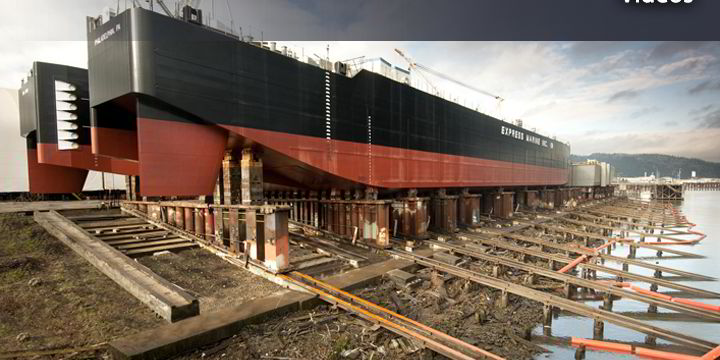Late last night a well-placed marketsource told TradeWinds the Portland, Oregon-based shipbuilder landed a contractto construct the vessel’s 185,000-barrel tank barge.
Today this was confirmed by the company’sNew York-listed parent, Greenbrier Companies, but it’s still unclear which US yardwas hired to build the 10,000-hp tug.
In a statement it noted the orderincludes an option and said construction is scheduled to start in June of thisyear before applauding the spike in demand for Jones Act tank barges, a trend itattributed to the shale oil revolution and ageing fleet of existing tonnage.
While the identity of the second shipyardis still a mystery market sources with ties to shipbuilders in the PacificNorthwest and US Gulf have ruled out Vigor Industrial and Signal Internationalas possibilities despite rumours to the contrary.
Kirby made headlines on Wednesday whenit announced plans to construct an ATBwith a price tag of approximately $75mto $80m on the back of a contract with a “major customer” that will charter theunit for up to five years upon delivery in the second half of 2015.
Gregory Lewis, an equity analyst atCredit Suisse, believes vessel will be used to shuttle crude along the US WestCoast since Gunderson is located in this region and estimates the day rate tobe approximately $45 to $50,000, which appears to be in line with the currentaverage.
Observers note crudeextracted from the Bakken shale formation in the Midwest is being shipped byrail to two major refineries in the Pacific Northwest but note most of the other facilitiesin the Puget Sound area are serviced by Jones Act tonnage.
Tesoro, which is active in the regionand recently teamed up with Salvage Services to construct a 120,000-barrel perday rail-to-tanker facility in Vancouver, Washington, has been tipped as thecharterer of Kirby’s ATB while others believe the counterparty may be Valero.
Prior to yesterday’s order the therewere 43 ATBs actively trading in the US cabotage market and only twonewbuildings. With a fleet this small, it may not come as a surprise that asingle order can make waves in the Jones Act market.
The Jones Act is a reference to a law that protects domestic operators from low-cost foreign competition by requiring that the coastwiseshipment of goods are handled by vessels that are US built, USflagged, US crewed and US owned.




